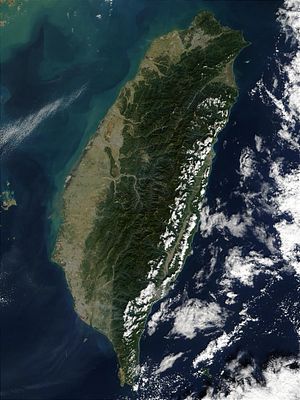The status quo in the Taiwan Strait looks increasingly shaky. Its demise would almost certainly usher in a major conflict and undermine regional stability in East Asia – and even the international order as we know it. The People’s Republic of China, Taiwan, and the United States are each in their own way undermining the precarious balance that has lasted for generations off China’s southwest coast: Spoken or unspoken issues regarding national identity have driven domestic changes and fostered new domestic policy pressures.
Most fundamentally, China’s strategy of embracing Taiwan economically and luring it into unification on the basis of the “one country, two systems” formula has failed. Despite or because of Beijing’s heavy-handed efforts to influence the outcome, Taiwanese President Tsai Ing-wen and her independence-minded Democratic Progressive Party (DPP) won the recent elections. Support for reunification has withered and united the country against unification. Taiwan wants to govern itself in order to realize its democratic, Taiwanese identity.
Beijing seems increasingly impatient with Taiwan’s resistance to unification. Xi Jinping recently threatened that “the country must be unified, and it will be unified” – the official deadline being 2049, the 100th anniversary of the founding of the People’s Republic. China has increased military pressure on Taiwan through intrusions into Taiwan’s airspace and naval maneuvers in the Taiwan Strait. The Chinese Communist Party (CCP)’s idea of China is that of a strictly territorial state with a unified people, defined by clearly demarcated borders and with the party in full control of the country. Taiwan’s democracy is a threat to the CCP’s concept of legitimacy and national identity.
The United States traditionally protected the status quo in the strait with its policy of “strategic ambiguity,” which opposed both a unilateral unification by force by China and a unilateral declaration of independence by Taiwan. But the shifting geopolitical balance and the relative decline of the U.S. saw both President Donald Trump and his successor Joe Biden strengthen U.S. support for Taiwan. As provocative as this stance may be toward Beijing, it is meant to prevent worse. Unification would restore Chinese preeminence in East Asia – and damage the United States’ image and self-image as the world’s leading power.
The future of Taiwan is more than a regional problem and geopolitical trial of strength – it cuts to the core of the modern identities of all three nations involved. Given this, what could possibly go wrong? Taiwan is at the center of the novel “2034,” co-authored by James Stavridis, a former four-star admiral and supreme commander of NATO in Europe. The book imagines a world war between the United States and China that is triggered by China’s ambitions to take control of Taiwan. Admiral Philip Davidson, the outgoing commander of the U.S. Indo-Pacific Command, recently warned China could try to invade Taiwan within six years.
China has persistently refused to rule out the use of force to achieve unification, but an outright Chinese invasion attempt seems unlikely. It would face formidable obstacles and major uncertainties. It would risk killing and destroying much of who and what is to be united with the homeland. Moreover, Taiwan has developed its own missile force that could threaten Shanghai and Beijing. An invasion would also risk escalation, horizontally (as not only the United States, but other countries in the region, such as Japan, might be drawn into the conflict) and vertically (if Taiwan and the U.S. started attacking mainland targets).
Beijing’s use of force could take more indirect forms, however. Since 2019, mainland military incursions into Taiwan’s territorial waters and airspace have become ever more frequent. In 2020, Taiwan registered 100 days on which violations of its airspace by Chinese military aircraft occurred; by mid-April of this year its tally had already reached 75 days. Beijing’s aim is to force Taiwan’s much smaller air force to scramble its fighters in response, attrition designed to exhaust Taiwan’s capacity and weaken its will to defend itself.
Alternatively, China could try to strangle Taiwan economically. Business ties between the two countries have grown into a dense web of interdependence: Taiwanese companies have invested $190 billion on the mainland, and more than a million Taiwanese live there. Yet these ties are now fraying as talk of economic decoupling occupies businesspeople and politicians in Taiwan. Faced with this undesirable trend, China could mount an economic blockade to coerce Taiwan into submission, as the United States tried with Cuba in 1962. This strategy would rely on China’s military and come with the risk of escalation as the U.S. tried to end the blockade.
Many of these scenarios assume that China would accept considerable risk and force unification. But this would run counter to past Chinese policies, which tended cautiously to push for advantages yet desist when faced with determined push-back. Given that, Beijing might seek unification through subversion, by orchestrating polarization and unrest inside Taiwanese politics and society. Such efforts have been under way for some time already: Taiwan has been the target of an extensive online influencing campaign and a whole range of traditional measures, such as financing pro-Beijing media outlets and political candidates.
Lastly, there is a risk of a major conflagration starting by accident. War could be the result of a concatenation of events, misperceptions, and emotionally charged decisions, much like the outbreak of World War I. One reason Germany went to war in 1914 was its fear of an ever more powerful Russia. Given the relentless escalation of mutual distrust and hostility, China’s exaggerated self-confidence in its right and ability to resume its ancient leadership position in East Asia, and the fractious and combustible domestic politics in the United States, such a train-wreck could well be the greatest geopolitical risk as the status quo in the Taiwan Strait wobbles.

































